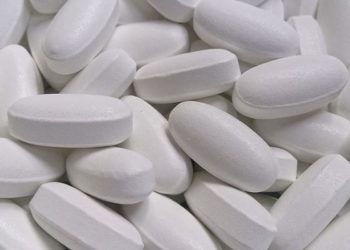Tafamidis improves all-cause mortality among patients with transthyretin amyloid cardiomyopathy
1. In a phase 3 randomized control trial, tafamidis was shown to have associations with greater reductions in all-cause mortality and cardiovascular related hospitalizations compared to placebo among participants with transethyretin amyloid cardiomyopathy.
2. The safety profile of tafamidis was comparable to placebo.
Evidence Rating Level: 1 (Excellent)
Study Rundown: Transthyretin amyloid cardiomyopathy is a disease that results from deposition of mutant and wild-type transthyretin within the myocardium. Current treatment options for this disease are limited to supportive care with low median survival rates once a diagnosis is made. Tafamidis is a novel transthyretin stabilizer that inhibits the dissociation of protein tetramers into monomers. In early studies it has been shown to slow disease progression for transthyretin amyloid cardiomyopathy. In the Transthyretin Amyloidosis Cardiomyopathy Clinical Trial (ATTR-ACT) the effects of tafamidis versus placebo on all-cause mortality, cardiovascular-related hospitalizations, and safety profile outcomes during the 30-month trial period were evaluated. Overall, tafamidis treatment resulted in greater reductions in all-cause mortality and cardiovascular-related hospitalizations compared to placebo. Tafamidis was also associated with reduced declines in quality of life and functional capacity compared to placebo. Together these findings suggest that tafamidis could be considered an effective medication for patients with transthyretin amyloid cardiomyopathy.
Click to read the study, published in NEJM
Relevant Reading: Tafamidis in Transthyretin Amyloid Cardiomyopathy: Effects on Transthyretin Stabilization and Clinical Outcomes
In-Depth [randomized controlled trial]: This phase 3, multicenter, parallel-group, randomized control trial enrolled 441 patients from 2013-2015 to receive either tafamidis or placebo treatment regimens. Eligible participants were randomized in a 2:1:2 ratio to receive 80mg tafamidis daily, 20mg of tafamidis daily, or placebo. Composite outcomes for each tafamidis group were calculated and compared to placebo. Of the 441 patients initially randomized, 264 patients received tafamidis (either 80mg or 20mg) and 177 received placebo. All-cause mortality was lower among the tafamidis group (28 of 264, 29.5%) compared to placebo (76 of 177, 42.9%; hazard ratio [HR], 0.70; 95% confidence interval [CI], 0.51 to 0.96). Rates of cardiovascular-related hospitalizations were also lower among the tafamidis group (0.48 vs 0.70 hospitalizations per year, relative risk [RR], 0.68; 95% CI, 0.56 to 0.81). When stratified by New York Heart Association (NYHA) functional classifications, outcomes favored tafamidis except for patients who were in the NYHA class III disease at baseline. In terms of secondary outcomes, tafamidis reduced declines in functional capacity, as assessed by the six-minute walk test (75.68m + 9.24, P<0.001). Tafamidis was also associated with reduced declines in KCCQ-OS quality of life scores compared to placebo (13.65 points + 2.13, P<0.001). The safety profile of tafamidis was deemed comparable to placebo, with most adverse effects characterized as mild to moderate in severity.
Image: PD
©2018 2 Minute Medicine, Inc. All rights reserved. No works may be reproduced without expressed written consent from 2 Minute Medicine, Inc. Inquire about licensing here. No article should be construed as medical advice and is not intended as such by the authors or by 2 Minute Medicine, Inc





![siRNA against antithrombin alleviates symptoms of hemophilia [PreClinical]](https://www.2minutemedicine.com/wp-content/uploads/2015/04/clot-CCWiki-75x75.jpg)
![Childhood ADHD associated with increased risk of suicide [Physician Comment]](https://www.2minutemedicine.com/wp-content/uploads/2013/03/PET-image1-e1377449984183-75x75.jpg)
